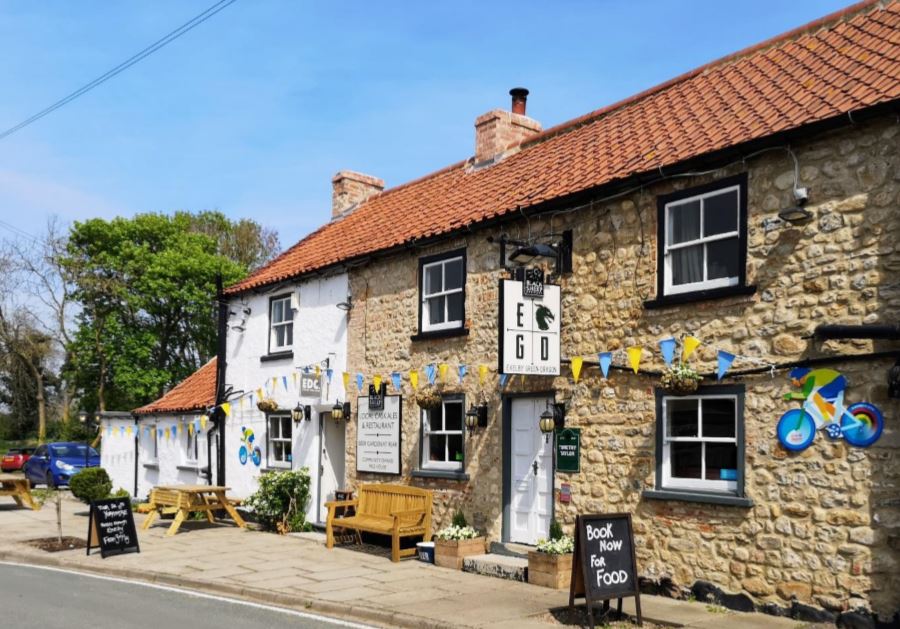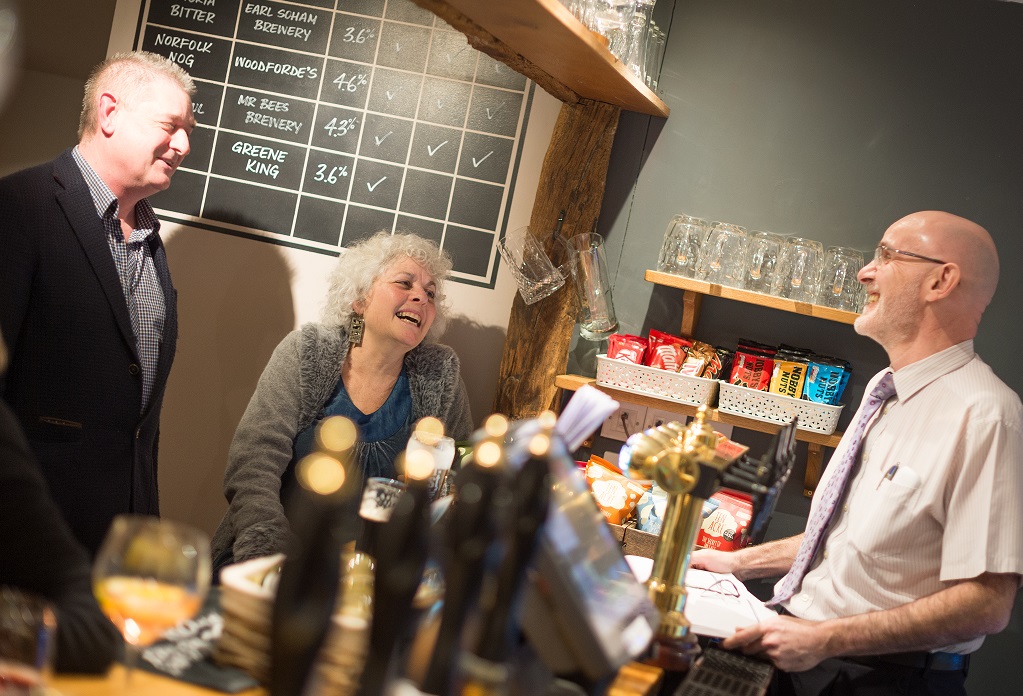Community pubs: “Ten things we wish we’d known before we started.”
As part of Plunkett’s training programme and hosted by the fantastic pub group at the Exelby Green Dragon, we delivered a session called “10 Things We Wish We’d Known Before We Started”.
This was aimed at early stage community pub groups as tips from those that have gone the distance to being open and trading, as well as sage advice from Plunkett’s network of specialist business advisers.
Diane Cameron, Plunkett’s Project Support Officer highlights their nuggets of wisdom:
1. The boring things are REALLY important
Paying VAT and reclaiming it, budgeting for employers’ National Insurance, licenses, planning permissions and registering with HMRC to file tax returns are all really important things. Plunkett business advisers can help guide you through thinking about and doing these things, while Plunkett community business members can access negotiated deals with our trusted third party providers. Find out more about membership here: Become a member – Plunkett Foundation.
2. Engage your community and keep doing it
You need to think about the future and succession planning for your committee as no-one wants to do it forever and people will want to take a step back, so you’ll need willing replacements. Keep engaging with and communicating with your member shareholders and the wider community so they are actively involved and much more likely to step up when needed. Communication needs to be forever!
3. Everything takes a lot longer than you think it will
A big committee takes longer to make decisions, and everyone is a volunteer so can only devote so much time and effort. Communication and collaboration and research take time and are really important, so must be done. Opening a bank account can take weeks and registering legally with the FCA can take up to a month. Use Plunkett’s model rules and registration service which are pre-approved by the FCA (member and non-member charges apply) and our free resources for communications planning.

7. Think about local!
Local supply chains, employment, work experience, volunteering opportunities and local organisations all benefit your local economy and generate enormous goodwill and awareness. What organisations can you partner with locally where you can help each other? Think about schools, clubs and societies, charities – these are how you generate your wide social impact and get even more people supporting you. You might end up doing things you’d never thought of!
8. Apply to grant programmes that fit
There are lots of angles to go for in a community pub: are you providing services for the vulnerable, isolated or elderly? Local food provision? Environmental services, recycling, EV charging, solar panels? Do you support your community’s health and wellbeing or mental health? Do you have sports teams? For a community pub the answer is often yes! All these can mean you can apply to different grants that target those ‘alternative’ areas rather than ones just for pubs, or businesses generally. Be creative and keep your eyes open! But also bear in mind that grants come with work, especially in reporting back to the grant-giver and complying with the rules of the grant if you are successful – don’t apply to too many if you can’t cope with the work.
4. You can’t do everything yourselves – get some experts
Employ an appropriate accountant if you don’t have one locally that has the right knowledge and experience. Think about the skills you need as a group: communications and social media, diversification ideas, hospitality skills, pub trade knowledge, business experience. Do a skills audit of your committee and then ask for people with particular skills to join you or to form a small working group for specific areas. Contact Plunkett if you need a steer.
5. Be very careful when engaging a tenant
Make sure you interview them in depth. Check reviews about their current pub, as well as their references. In turn, make sure they understand what a community pub is, why the local community are so involved in it, and why it’s different to a privately owned pub, particularly about services for the wider community. Plunkett has resources for you and prospective tenants about this. Make sure you have an inventory setting out what belongs to the pub so there is no debate at the end of a tenancy. Have a couple of committee members at most who meet regularly with the tenants to represent the community / committee. Agree boundaries; after all, this is the tenants’ business to run, but explore how your committee can best support them and present them with ideas without ‘taking over’.
6. Moving from campaigning to operational phase is a big step change
It is likely that previous committee members will move to the background and new people with operational knowledge and skills will take over – plan for that. Peer networking at Plunkett’s events, watch our virtual pub study visits, join our Community Pubs Network Facebook group and visit other pub groups are all important as you approach operational phase and fit out of the pub. Think about the flow of people into the pub. Have a soft launch for members only, to iron out teething problems. Ask for Plunkett adviser support.

9. Think about liquidity
If you have loans from “friends” make sure repayments are planned in a way that is affordable in the early years. Remember to plan for share withdrawal requests and how that will be managed – Plunkett advisers can help you think through these things. In particular, be wary of large share purchases: this can be very destabilising if the shareholder decides they want to withdraw their shares. A wider membership with more equal distribution of shares is less risky and following our business model can help you with this. Make sure that all members understand that share withdrawals are at the group’s discretion and only when they are viable.
10. A pub is for life, not just for opening day!
Planning and communication don’t stop when the pub opens, it’s constant. Keep asking Plunkett for advice and help when you’re trading, keep in touch with your community and make an effort to welcome newcomers to your area – they could be just the people you’re looking for to help you out!
For resources, advice or any further information contact Diane Cameron via Diane.Cameron@plunkett.co.uk or call our free helpline 0845 5771469.




